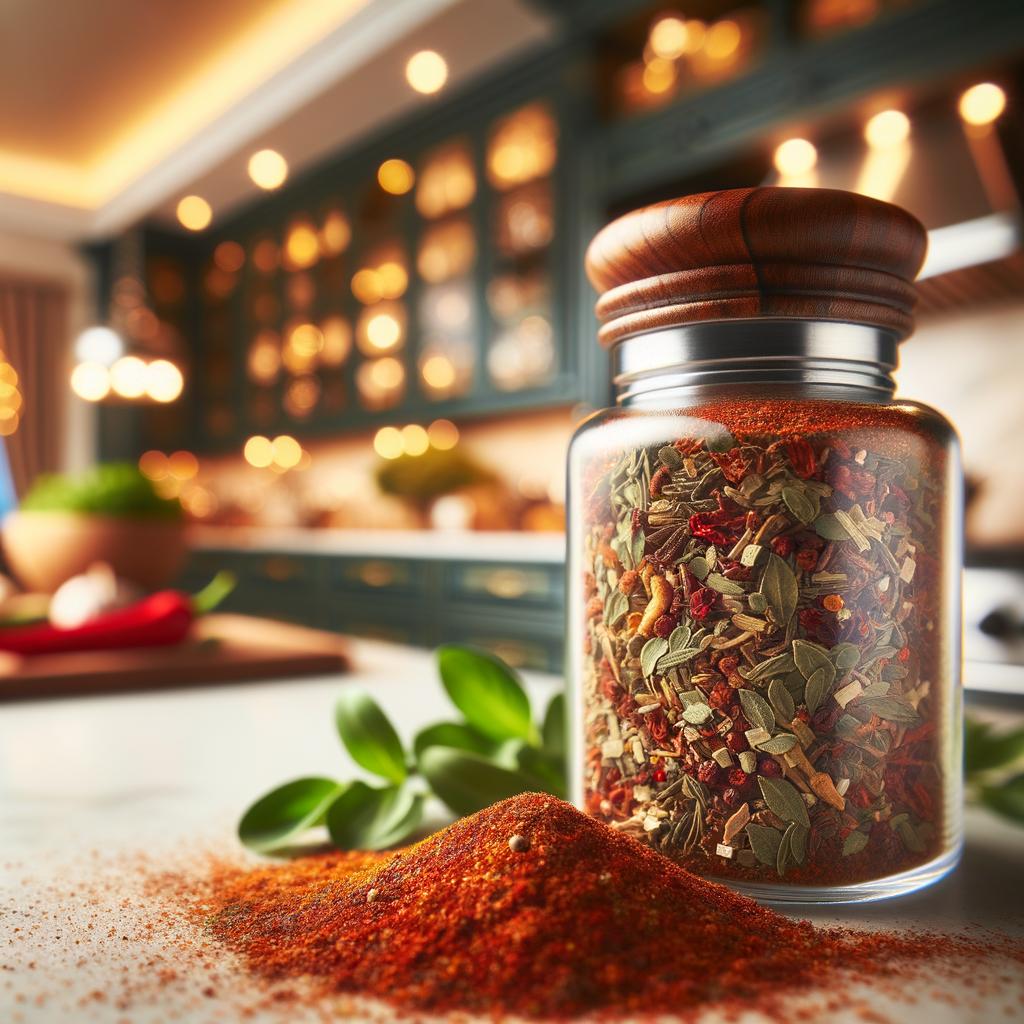Ras El Hanout

Description Ras el Hanout is a jewel in the crown of Moroccan cuisine, a symphony of flavors and aromas that can transform the simplest dish into a culinary masterpiece. It is a complex spice blend that can consist of anywhere from 10 to 100 different spices, depending on the recipe. The name "Ras el Hanout" translates to "head of the shop," implying that this blend is the best offering a spice merchant has to offer.
This exotic bouquet of flavors has a warm, golden hue, and its texture is a finely milled powder that feels like the desert sands of Morocco. Its flavor profile is a tantalizing balance of sweet, spicy, and savory notes. Each blend of Ras el Hanout is unique, but common ingredients include cardamom, cumin, clove, cinnamon, nutmeg, mace, allspice, dry ginger, chili peppers, coriander seed, peppercorn, sweet and hot paprika, fenugreek, and dry turmeric.
Primary Uses Ras el Hanout's versatility makes it a staple in Moroccan cuisine, used in everything from tagines and couscous to grilled meats and fish. It's also a key component in Harira, a traditional Moroccan soup. Beyond Morocco, it's used in other North African cuisines and even in some Middle Eastern dishes. In addition to its culinary uses, Ras el Hanout is sometimes used in traditional medicine for its potential digestive and anti-inflammatory properties.
History The history of Ras el Hanout is as complex and diverse as the blend itself. It's believed to have originated in North Africa, with spice merchants creating their own secret blends. The exact composition and proportions of a Ras el Hanout blend were often closely guarded family secrets passed down through generations.
There's a romantic myth that says the blend was created by spice merchants who combined all their spices into one in an attempt to win the heart of a beautiful woman. Whether this story is true or not, it's certain that Ras el Hanout has won the hearts of many food lovers over the centuries. Its use has spread across the globe, and while it was once a rare and exotic ingredient, it's now found in kitchens worldwide.
Nutritional Information Ras el Hanout is not only a flavor powerhouse but also a nutritional one. The spices in this blend are rich in antioxidants, anti-inflammatory compounds, and other bioactive substances that can contribute to health. For instance, turmeric contains curcumin, a potent anti-inflammatory compound, while cinnamon is known for its potential blood sugar-lowering properties.
However, the exact nutritional composition of Ras el Hanout can vary widely depending on the specific blend of spices used. Nonetheless, incorporating Ras el Hanout into your meals can be a delicious way to add a boost of flavor and health benefits to your diet.

